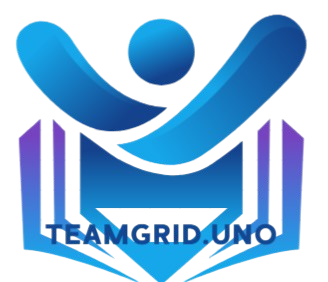Understanding Results-Oriented Online Courses
In the realm of online education, results-oriented online courses have emerged as a pivotal approach for learners striving for tangible achievements. These courses are specifically designed to focus on delivering measurable outcomes that align with the specific goals of students. One of the key characteristics that defines a results-oriented online course is its ability to integrate practical skills and theoretical knowledge, ensuring that learners can apply what they have learned in real-world scenarios.
Another defining feature of these courses is the emphasis on hands-on learning opportunities. This can include interactive projects, simulations, and case studies that provide learners with practical experience, fostering deeper understanding and retention of materials. By engaging with content through active participation, learners are not only absorbing information but are also able to practice and hone their skills in a supportive environment. This active engagement is crucial for achieving successful outcomes, as it allows students to see the direct application of their studies.
Moreover, continuous support is integral to the structure of results-oriented online courses. This often involves access to instructors, mentors, or peer groups, enabling learners to seek assistance and feedback throughout their educational journey. Such support mechanisms enhance motivation and accountability, allowing students to remain focused on their objectives. In addition, a results-driven approach encourages the establishment of clear learning outcomes that guide both the curriculum and assessments. For learners seeking to achieve specific milestones, this clarity is essential, helping them stay on track and measure their progress effectively.
Adopting a results-oriented perspective in online education not only improves learner engagement but also bolsters achievement rates. As students pursue their goals with concrete resources and support, they are more likely to succeed in their educational endeavors.
Building an Impressive Portfolio through Online Learning
In today’s competitive job market, showcasing one’s skills and accomplishments has become essential for career advancement. Online courses provide an excellent opportunity to not only acquire new knowledge but also to build an impressive portfolio that effectively represents one’s learning journey. By engaging in results-oriented online courses, learners can complete various projects that demonstrate their capabilities and mastery of specific subjects.
One of the key advantages of online learning is the flexibility it offers. Participants can select courses that align with their personal and professional goals, allowing them to focus on areas that are directly relevant to their desired career path. As courses are completed, learners can compile their work, such as projects, assignments, and presentations, into a portfolio that highlights their skills and competencies. This collection of work serves not only as tangible evidence of what one has achieved but also reflects the practical application of the knowledge gained through these online courses.
When curating a portfolio, it is vital to ensure that it tells a cohesive story. Start by including a brief introduction that outlines your professional background and objectives. Then, thoughtfully incorporate completed projects, emphasizing the skills acquired and the challenges overcome during the learning process. Consider using real-life examples to illustrate how the knowledge obtained from these courses has been or can be applied in professional scenarios. This not only showcases your learning but also helps potential employers understand the value you can bring to their organization.
Ultimately, possessing a well-structured and comprehensive portfolio can significantly enhance your career opportunities. It acts as a powerful tool in demonstrating your commitment to continual learning and improvement, setting you apart from other candidates. In an age where online education is increasingly recognized, a strong portfolio can be a decisive factor in achieving career success.
The Role of Practice in Mastery
Achieving mastery in any field of study requires more than simply absorbing theoretical knowledge; it necessitates consistent practice and application of that knowledge. Online courses have increasingly recognized this need, effectively integrating practical exercises, simulations, and real-world projects into their curriculum. These components not only enhance the learning experience but also help learners consolidate their understanding, leading to deeper comprehension and long-lasting retention of skills.
One essential aspect of online learning is the incorporation of practical exercises that allow students to apply theoretical concepts in a controlled environment. These exercises can vary widely, from quizzes that reinforce key concepts to case studies that require critical thinking and problem-solving. Such interactions are designed to simulate the challenges learners will face in real-world scenarios, thereby making the learning process more relevant and dynamic.
Further, many online courses utilize simulations that mimic real-life situations, enabling students to practice their skills without the repercussions of making mistakes in a high-stakes environment. These simulations can be particularly valuable in technical fields such as engineering, healthcare, or business management, where the application of knowledge is crucial. By engaging in these simulated experiences, learners gain confidence and competence, which are vital components of mastery.
Additionally, projects based on real-world applications serve as an effective means of solidifying knowledge. When students work on projects, they are required to synthesize information and utilize various skills to produce tangible outcomes. This hands-on experience fosters critical thinking and creativity, further enhancing a learner’s ability to master the subject matter. The diverse types of practice opportunities offered in online courses thus play a significant role in shaping a learner’s journey toward mastery.
The Importance of Support in Online Learning
In the realm of online education, support mechanisms play a pivotal role in enhancing the overall learning experience for students. These support systems include instructor feedback, peer collaboration, and access to various learning resources. Effective support not only nurtures the learner’s environment but also significantly impacts motivation, accountability, and the attainment of educational goals.
Instructor feedback is vital as it provides learners with the insights needed to improve their understanding of the material. Constructive feedback from instructors can guide students in the right direction and help them identify areas for improvement. The timeliness of this feedback is equally important, as it allows students to make necessary adjustments to their learning strategies promptly. When students receive regular evaluations and constructive criticism, they are more likely to remain engaged in their coursework, fostering a sense of responsibility and commitment.
Equally significant is the role of peer collaboration in an online learning environment. Collaborative learning allows students to share ideas, gain new perspectives, and learn from one another’s experiences. By actively engaging with peers, students can cultivate a sense of community, which often mitigates feelings of isolation that can accompany online learning. This peer support not only enhances problem-solving skills but also promotes motivation as students encourage each other to stay on track.
Additionally, access to resources—such as academic articles, online forums, and video tutorials—further enriches the learning experience. When learners have a plethora of educational materials at their disposal, they are more equipped to explore topics in depth, thereby fostering a robust understanding of the subjects at hand. In conclusion, a well-rounded support system comprising instructor feedback, peer collaboration, and diverse resources is essential for maximizing the effectiveness of online learning, helping students achieve their academic objectives.


No responses yet